Amending the Law on Technical Standards and Regulations to facilitate businesses
After nearly 20 years of implementation, the Law on Technical Standards and Regulations has encountered many limitations and shortcomings, requiring appropriate amendments to promote business development.
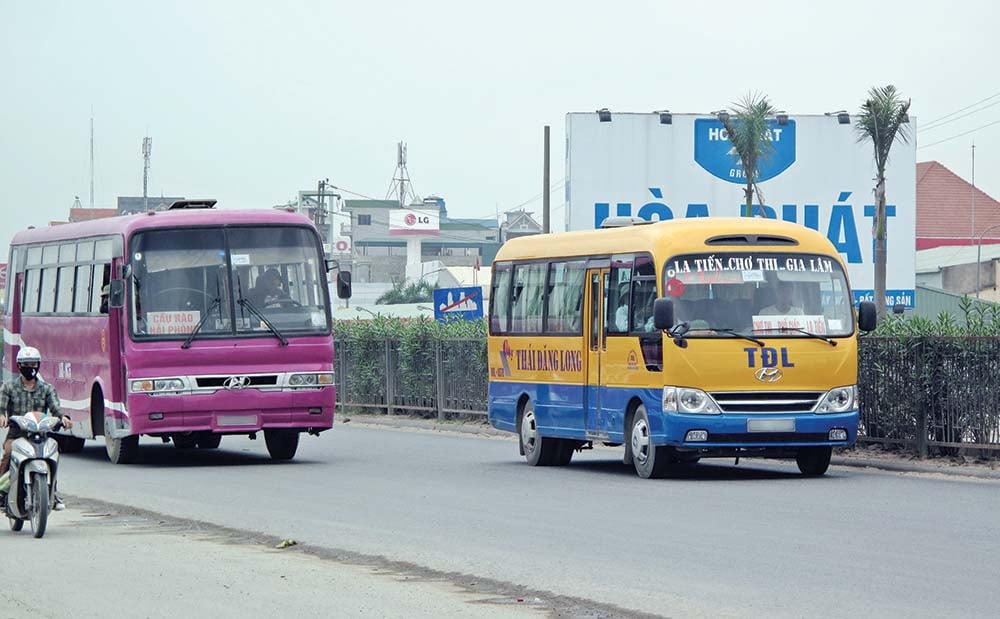 |
| Regulations on installing cameras on cars, but slow release of camera standards makes transport businesses confused. Photo: Duc Thanh |
Who cries this pain
Mr. Pham Thanh Huy from the Vietnam Automobile Transport Association likened changes in technical regulations and standards to changes in policy. If they are not maintained stably and long-term, they will cause great damage to businesses.
Mr. Huy cited a practical example related to the issue of installing dash cams on transport vehicles. In the context of businesses struggling with the Covid-19 pandemic, regulations on installing cameras were issued, but there were no specific standards or regulations. However, businesses were forced to do so, otherwise they would be fined. But after a while, new standards and regulations on surveillance cameras were issued, and transport businesses had to replace a series of them to meet the standards.
Not stopping there, at first, businesses had to install 3 cameras in 3 locations: the driver's area, the entrance door and the passenger compartment. Later, the Law on Road Traffic Order and Safety required only 1 camera in the driver's area, removing the remaining 2 cameras. A recent regulation continues to require that the camera in the cockpit must transmit sound and images every 30 seconds to the management system of the state management agency.
“We are so stressed. Hundreds of thousands of cars have had to throw away their old cameras to install camera systems that transmit sound and images. Thousands of billions of dong have been thrown away without anyone feeling sorry,” Mr. Huy lamented.
The business community expressed their desire to eliminate the abuse of norms instead of standards. In which, the contents that affect public interests should be kept in norms; the parts that do not affect should be kept in standards.
Passed by the National Assembly in 2006, the Law on Technical Standards and Regulations, effective from January 1, 2007, is an important legal document regulating relations related to technical standards and regulations of enterprises. The biggest difference between standards and regulations is that standards are essentially only recommendations, recommendations, and voluntary to apply. Regulations are issued by state agencies, requiring enterprises to apply them in production and business activities.
The Vietnam Federation of Commerce and Industry (VCCI) has received many complaints from businesses about the regulations and standards that are causing costs for businesses.
A typical example is the situation where there are issued standards with too many tests. Mr. Nguyen Minh Duc, VCCI Legal Department, shared about the 5G standards of the Ministry of Information and Communications (MIC). For touch devices using both 4G and 5G, the international community only requires testing of 4G standards, omitting 5G standards, but Vietnam requires testing of both categories.
Technically, there are insignificant differences between Vietnamese and foreign standards, but when businesses bring back certificates of conformity recognized abroad, they are not accepted, but require re-testing, causing businesses to incur additional procedural costs.
Notably, many standards were issued, but businesses could not find a unit to assess their conformity. Mr. Nguyen Van Khoa, a representative from Apple, said: “At the time the Ministry of Information and Communications issued the 5G standards, no measuring room in Vietnam could do it, only one MRA room (a testing room recognized under mutual recognition agreements - PV) abroad could measure it. The Ministry of Information and Communications had to suspend the validity of this standard at one point, then continued, but up to now, only one measuring room in Vietnam can measure 5G waves.”
Freeing businesses from inappropriate standards
The draft Law amending and supplementing a number of articles of the Law on Technical Standards and Regulations is being drafted by the Ministry of Science and Technology, collecting opinions from the expert and business community, and is expected to be submitted to the National Assembly for comments at the 8th Session of the 15th National Assembly, taking place in October 2024.
Commenting on the draft revised Law, businesses expressed their desire to eliminate the abuse of regulations instead of standards. In particular, contents that affect public interests should be kept in regulations; parts that do not affect should be kept in standards, avoiding the situation where businesses have to apply things that are only meant to encourage.
In addition, Article 32 of the Draft has added that enterprises and related organizations are allowed to participate in the process of developing standards. However, enterprises believe that “participation” is easily interpreted in many ways, in which simply giving comments is considered participation.
“With many standards, we are the ones directly affected, but we are not allowed to participate in the standard-building process, we can only give our opinions, and after giving our opinions, we do not know what will happen next. We hope that the Draft Law will have stronger regulations to ensure the real participation of businesses in the standard-building process. Particularly in the information technology sector, large companies and corporations operating globally like us can promote the introduction of new standards and regulations into Vietnam faster and more strongly,” affirmed an Apple representative.
On the side of the Drafting Committee, Mr. Ha Minh Hiep, acting Chairman of the National Committee for Standards, Metrology and Quality (Ministry of Science and Technology) said that the Law on Standards and Technical Regulations creates standards to evaluate and classify the quality of goods and products in circulation and production. However, the Law only issues general regulations, and specialized management agencies will issue additional regulations if necessary. Some problems and difficulties for businesses are not due to the fault of the Law on Standards and Technical Regulations, but due to limitations in the implementation stage, which is currently fragmented across many different ministries, departments and sectors.
To remove these bottlenecks, Mr. Hiep said, the drafting agency will supplement the standard impact assessment report to clearly understand how the standard is affecting businesses; promote the recognition of conformity assessment results provided by foreign organizations; decentralize implementation to each ministry, department, and branch; ensure transparency and fairness.
Source: https://baodautu.vn/sua-luat-tieu-chuan-va-quy-chuan-ky-thuat-de-tao-thuan-loi-cho-doanh-nghiep-d222128.html


![[Photo] Many people in Hanoi welcome Buddha's relics to Quan Su Pagoda](https://vphoto.vietnam.vn/thumb/1200x675/vietnam/resource/IMAGE/2025/5/13/3e93a7303e1d4d98b6a65e64be57e870)


![[Photo] Prime Minister Pham Minh Chinh receives Ambassador of the French Republic to Vietnam Olivier Brochet](https://vphoto.vietnam.vn/thumb/1200x675/vietnam/resource/IMAGE/2025/5/13/f5441496fa4a456abf47c8c747d2fe92)
![[Photo] President Luong Cuong awarded the title "Heroic City" to Hai Phong city](https://vphoto.vietnam.vn/thumb/1200x675/vietnam/resource/IMAGE/2025/5/13/d1921aa358994c0f97435a490b3d5065)

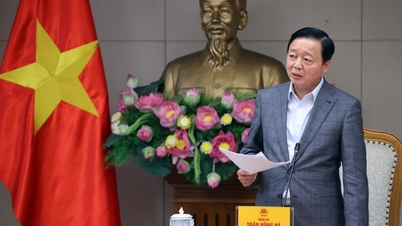








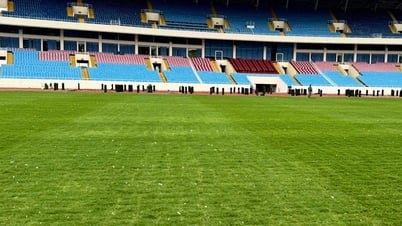

















































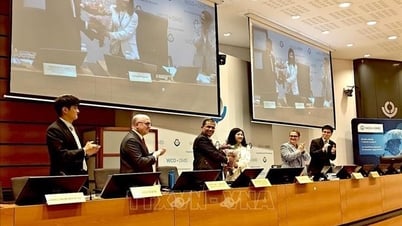




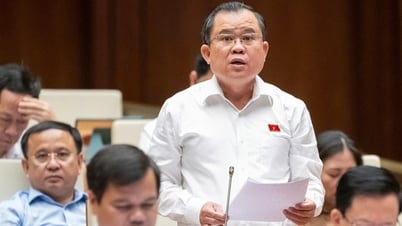










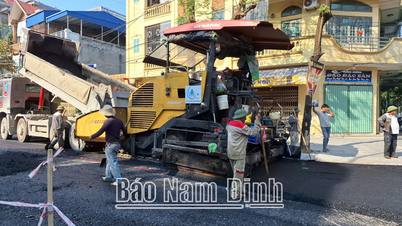

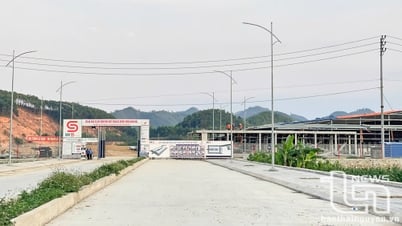



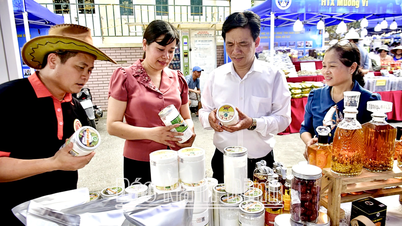












Comment (0)